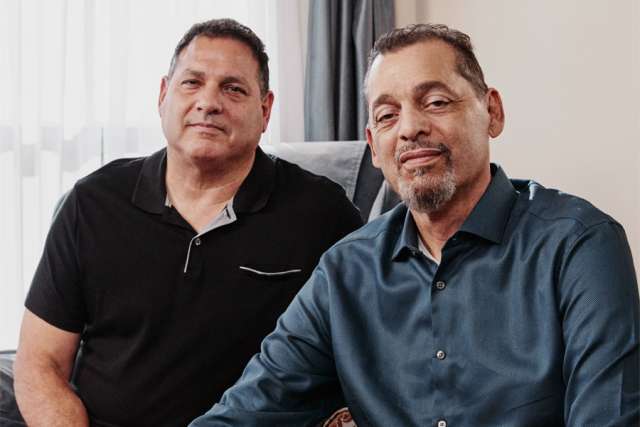Performing human-organ transplants without the necessity for a lifetime regimen of immunosuppressive drugs has been an enduring goal for transplantation medicine. Now, a new Medicare-approved protocol being implemented at UCLA Health with select living donor kidney-transplant patients is moving that dream closer to reality.
“It is the pinnacle of transplantation,” says renal-transplant surgeon Jeffrey Veale, MD, who has led UCLA’s effort to develop the protocol.
Dr. Veale has thus far performed the procedure with six well-matched sibling pairs. To date, three recipients have been weaned from all immunosuppressive medications and three are continuing their taper of medications.
While solid-organ transplants have been performed regularly since the 1950s, they always have required powerful drugs to prevent the recipient from rejecting the new organ. This is both expensive and risky for the recipient; these powerful immunosuppression drugs can have serious complications that include increased risk of cancer, infection, diabetes, hypertension and heart disease. Curbing these potential risks by eliminating the need for immunosuppression can extend the life of a donated organ. Potentially, “it is one kidney for life,” Dr. Veale says.
That can have a significant impact for patients; 20% of patients on the list to receive a deceased-donor kidney are waiting for their second, third or even fourth organ. “Every time a patient requires a re-transplant, it makes it harder and harder to get a match. In addition, the surgery itself becomes more difficult because of the scar tissue,” Dr. Veale says. “If we can prolong survival of the initial graft, we make it possible for other people to receive a kidney, and we can bring down the number of patients who are waiting.”
The transplant-tolerance protocol begins with extraction of stem cells from the bone marrow of a well-matched kidney donor. These stem cells are processed and, after the recipient has received the donor organ and undergone a series of radiation treatments, the stem cells are infused into the recipient. This infusion of the donor’s processed stem cells promotes “mixed chimerism,” the blending of the donor’s and recipient’s immune systems to prime the recipient to recognize, rather than reject, the new organ. Once chimerism forms, the organ recipient can wean off immunosuppression drugs.
Currently, the protocol is being implemented with well-matched family members. The Food and Drug Administration recently approved the protocol with mismatched pairs as well. Dr. Veale is now moving the protocol to a new stage, implementing the protocol “retrospectively” for patients who already have a well-functioning kidney transplant, using stem cells from the original organ donor.
Once the efficacy of retrospect ive transplantation has been demonstrated, Dr. Veale hopes to take transplant tolerance even further, implementing the protocol with deceased donors. “This is where I think UCLA will make a real difference,” Dr. Veale says. “Up until now, tolerance has been limited to living donors. We believe we can be the ones who will move the field forward to make the leap to tolerance with deceased-donor organs. That is where the big difference will be made.” Deceased donors accounted for 77% of the nearly 25,500 kidney transplants that were performed nationally in 2022.
“We would probably start with deceased donor kidneys. Then, theoretically, we can move to other solid organs: liver, heart and potentially lungs,” Dr. Veale says. “Also, to other areas that now are limited by immunosuppression medications, like vascular composite allograft transplantation, which would include hand, foot, uterus and face transplants. Those transplantations require very high levels of immunosuppression. If we can achieve tolerance with this group of patients, even if we aren’t able to get them down 100% to no immunosuppression, we might be able to get them to immunosuppression levels that aren’t so toxic.”

